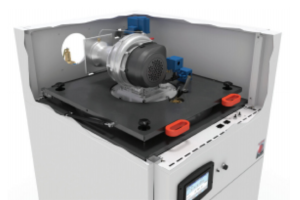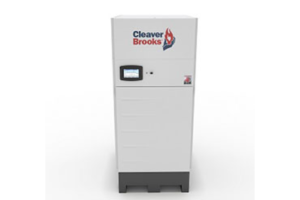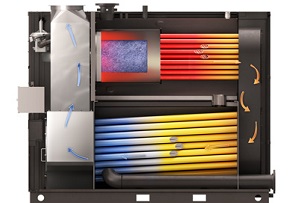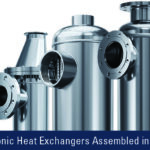R.F. MacDonald Co. has created a comprehensive collection of white papers to assist our customers with decisions about products and services we offer. These reports are written by experts in engineering and service. Topics include technical or business benefits, tips, Q&As and recommendations.
Total System Efficiency: Condensing Boiler System Myth Busting
There are many reasons engineers believe condensing boilers do not fit certain design applications, but most of the reasons are inaccurate due to outdated information.
Category: Hydronic Condensing Boilers
Source: Cleaver-Brooks
Condensing boilers can be used in most applications where a standard, non-condensing boiler can be used. Some of these reasons may have been valid for older, non-condensing boiler systems, but for condensing boilers, many of these concerns have been eliminated.
Also, within the condensing boiler segment, there are a variety of technologies available. Some condensing boilers require more maintenance than others or have specific piping, pumping, and flow requirements. High mass firetube condensing boilers have been developed to overcome many of these obstacles and can be piped in a variety of systems with success. Therefore, it is important to understand each boiler’s operating requirements, as well as total cost of ownership, when making a boiler selection. Read more
Keywords: Hydronic Boilers, Condensing Boilers, Firetube Boilers, Boiler Efficiency

Total System Efficiency with Condensing Boilers
The direct correlation between increasing condensation of flue gas and boiler efficiency in condensing boilers.Category: Hydronic Condensing Boilers
Source: Cleaver-Brooks
Boilers are closed pressure vessels that are used to heat fluids — either water or steam. They range in size, fluid to be heated, temperature of fluid and design configurations. This paper explains total system efficiency with a focus on condensing hot water boilers used for space heating, process applications and/or domestic hot water heating. In addition, this paper describes how the design paradigm is shifting from non-condensing boilers with high-temperature, hot water distribution systems to condensing boilers with water temperatures as low as possible to increase boiler efficiency. Read more
Keywords: Hydronic Boilers, Condensing Boilers, Firetube Boilers, Boiler Efficiency

Gas Technology: Condensing Hydronic Boilers
Return water temperature above or below 140° F will influence the need for a near-condensing or non‐condensing boiler.Category: Hydronic Condensing Boilers
Source: Cleaver-Brooks
It’s a clever idea. Condensing hydronic boilers can operate at efficiencies in the mid‐90s and above. The key to these fantastic efficiencies is to have incoming feedwater at temperatures below 140° F, and to be able to either modulate the boiler or have sufficient redundancy that operating units can be held near their efficiency “sweet spot.” Read more
Keywords: Hydronic Boilers, Boiler Efficiency

Effects of Ultra-High Turndown in Hydronic Boilers
Today, hydronic boilers are producing greater efficiencies than previously thought possible due to the advancements of condensing technology.Category: Hydronic Condensing Boilers
Source: Cleaver-Brooks
It is the science behind condensing that many people do not take the time to understand, which can lead to misunderstandings and the perpetuation of myths. One of the largest areas of confusion concerns high turndown.
Several manufacturers promote ultra-high turndown as the solution to efficiently meeting low seasonal, partial load demands. By understanding condensing boiler operation and the basics of thermodynamics, one will realize that an extremely high-turndown burner on a hydronic condensing boiler does not promote the highest system efficiency, but actually can make the system less efficient. Read more
Keywords: Hydronic Boilers, Condensing Technology, High Turndown, Boiler Efficiency





